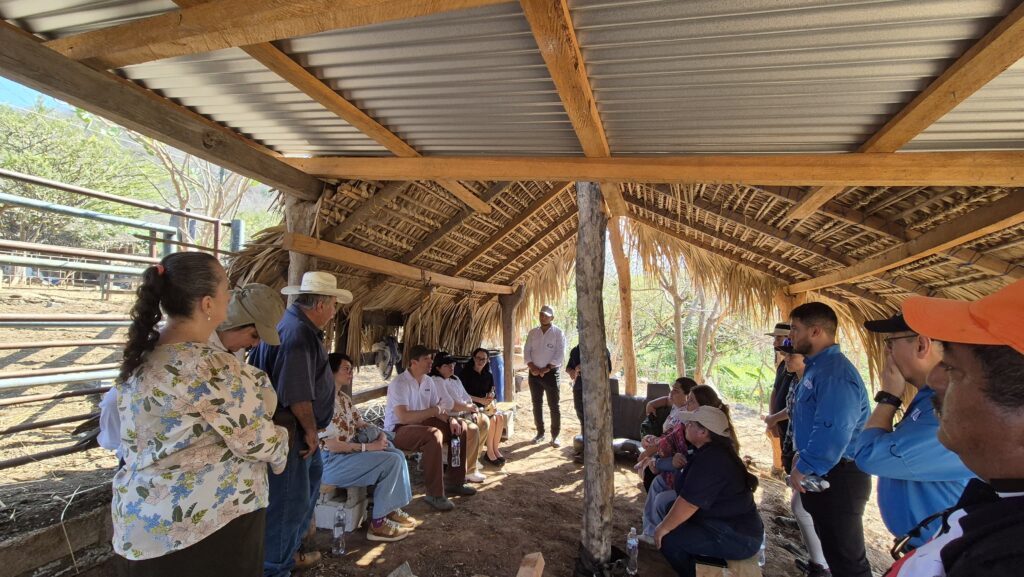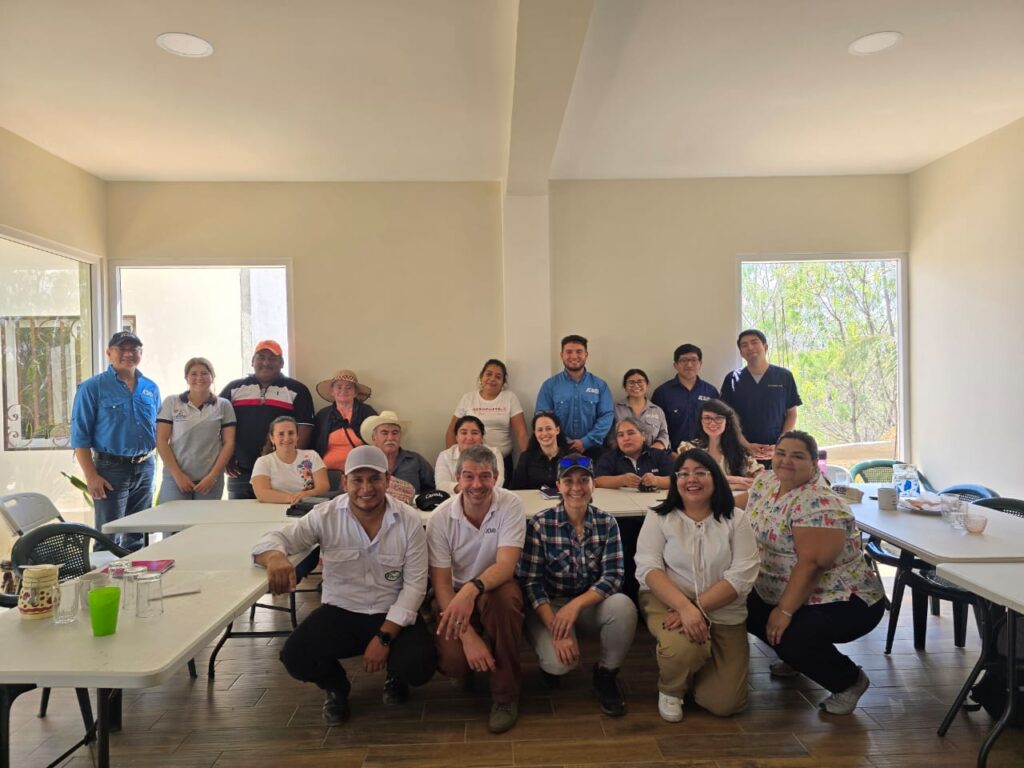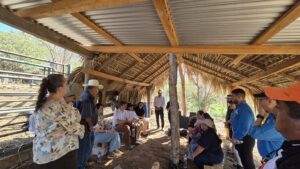Ms. Nadine Cabana, Senior Advisor, Hemispheric Affairs Division, Global Affairs Canada (GAC) and Ms. Azucena Cajas, International Assistance Officer, GAC, together with Mr. José María Perdomo, President of the Association for the Integral Development of Upper Zacapa (ADIPAZ) and Mr. Federico Villarreal, Representative of the Inter-American Institute for Cooperation on Agriculture (IICA) in Guatemala, learn about the progress made in the territory.

During the visit, a tour of the Finca El Trapiche took place, where Mr. José María Perdomo presented the different practices implemented, all aimed at achieving sustainable livestock farming, highlighting the management of hydroponic forage, silage, soil management and conservation, livestock waste management, agroforestry systems, use of organic fertilisers, vermicompost and bio-inputs, which have allowed him to improve productivity.
At ADIPAZ headquarters, the Board of Directors and the technical team shared their experience in the management of forestry and agroforestry systems, which serve as the basis for the promotion of silvopastoral systems in the implementation of TeleGan, as well as the different services they provide to the associated communities.
The main results of the baseline survey carried out with 100 ADIPAZ members in the upper part of Zacapa and the progress made in the gender analysis carried out using the case study methodology were also shared, with the following main conclusions being highlighted:
1. Progress in Women’s Participation, but with Persistent Challenges: Even though women’s participation in trainings and community organisations has increased, it is evident that there are still structural barriers that limit their access to spaces of power and decision-making.
2. Agricultural Sustainability and Productivity, among the needs identified are the improvement of cattle productivity, reducing production cycles, optimising the use of soil and fodder resources.

3. Complementarity between Profitability and Diversification; emphasising the different views of men and women on the same production units, while men are concerned with profitability, women are interested in diversification. The balance between both approaches is strategic for economic sustainability and food security.
With these reflections, the visit of Ms. Nadine Cabane and Ms. Azucena Cajas ended, who expressed the Programme’s interest in TeleGan contributing significantly to improve the living conditions of women and young people with access to innovation and technology that will allow them to have more sustainable and resilient livestock units.
About Telegan:

TeleGan is a collaborative regional project promoting sustainable and inclusive livestock management in Mexico and Guatemala, focusing on the empowerment of women, youth and indigenous peoples, funded by Global Affairs Canada.
About IICA:
It is the international organisation specialised in agriculture of the Inter-American System, whose mission is to stimulate, promote and support the efforts of its 34 Member States to achieve agricultural development and rural well-being through international technical cooperation of excellence.
More information:
Federico Villarreal: federico.villarreal@iica.int
Lourdes Ortiz : lourdes.ortiz@iica.int
Vivian Arguelles: vivian.arguelles@iica.int












